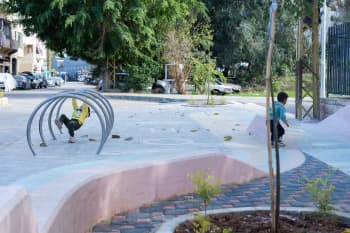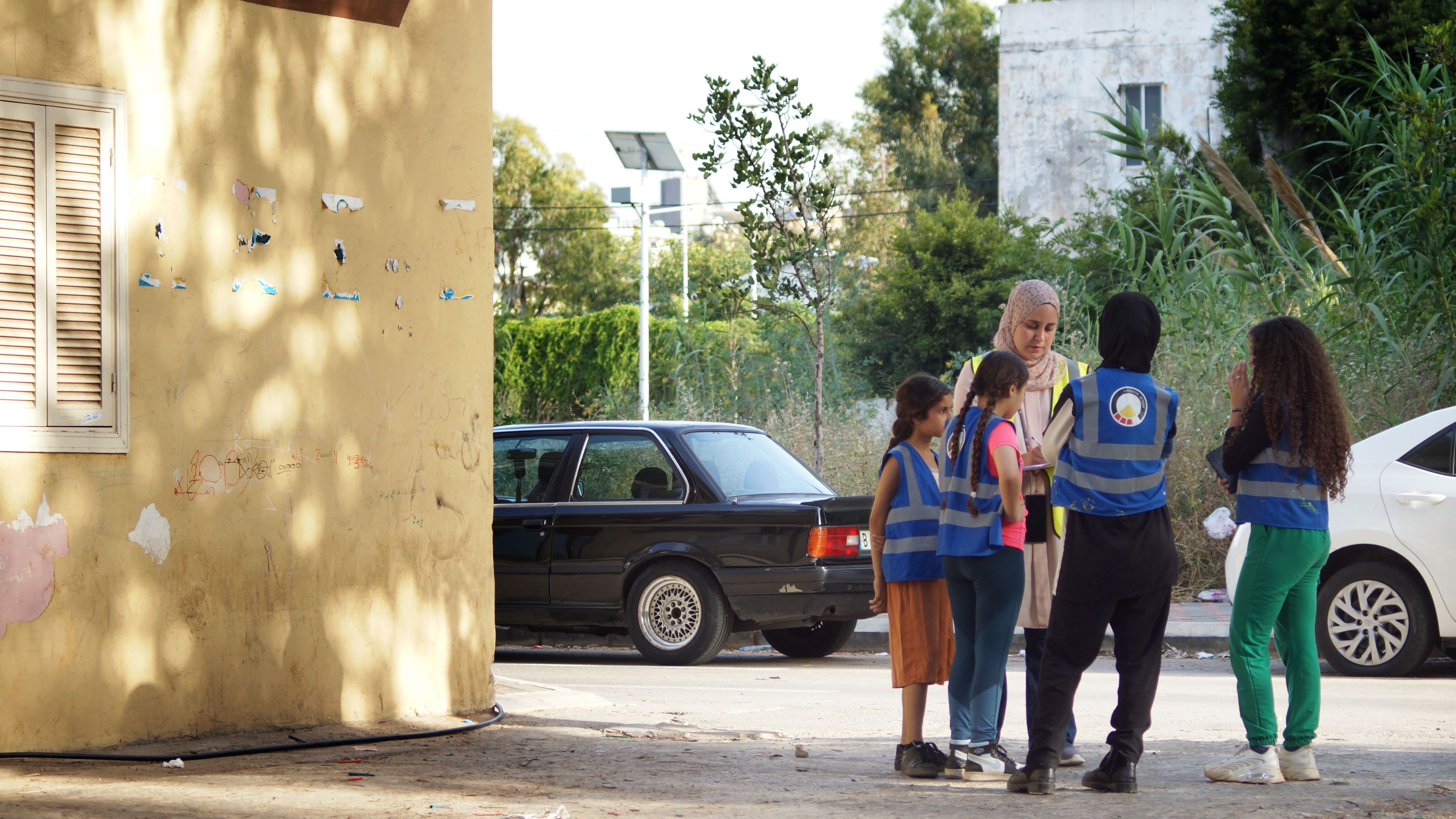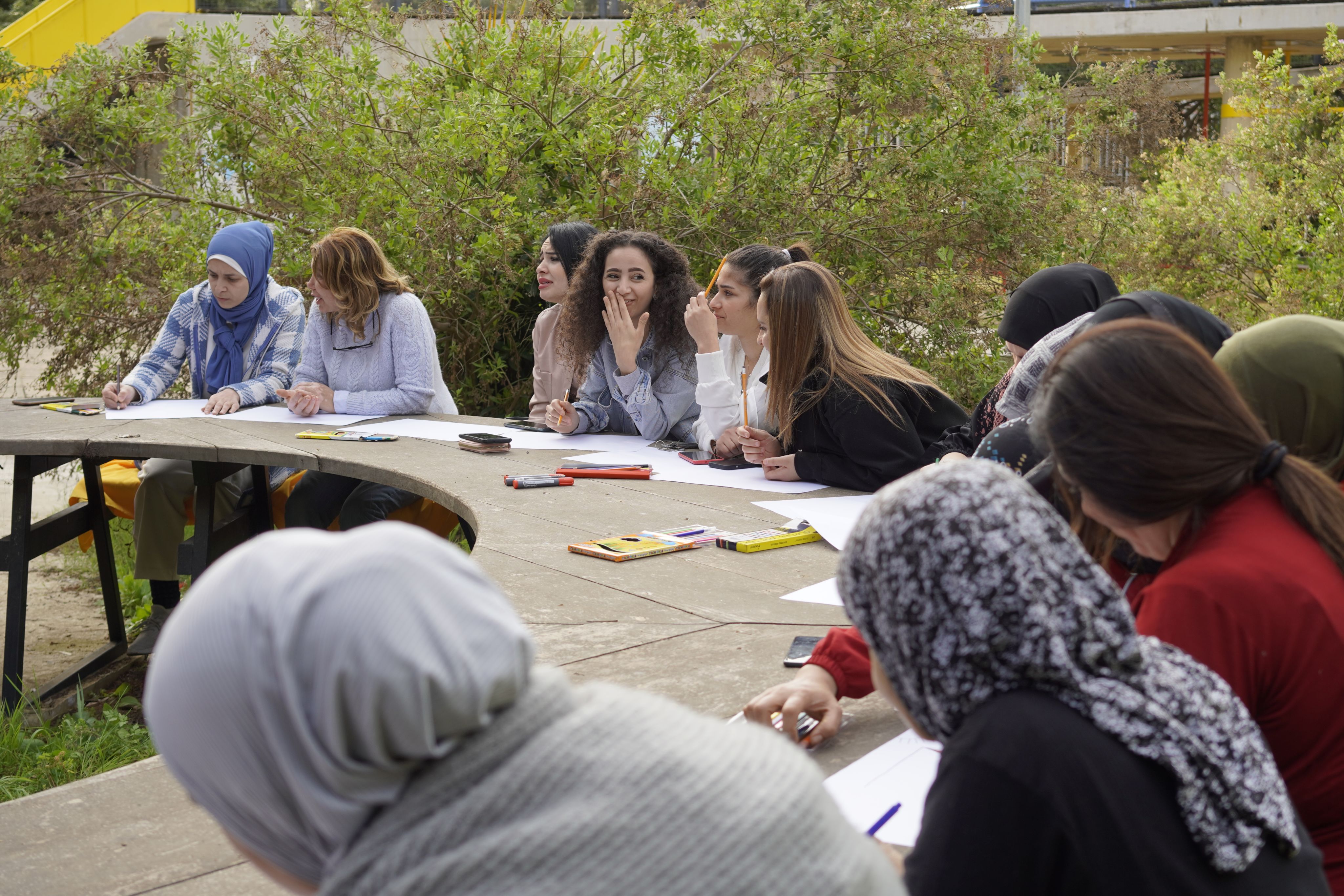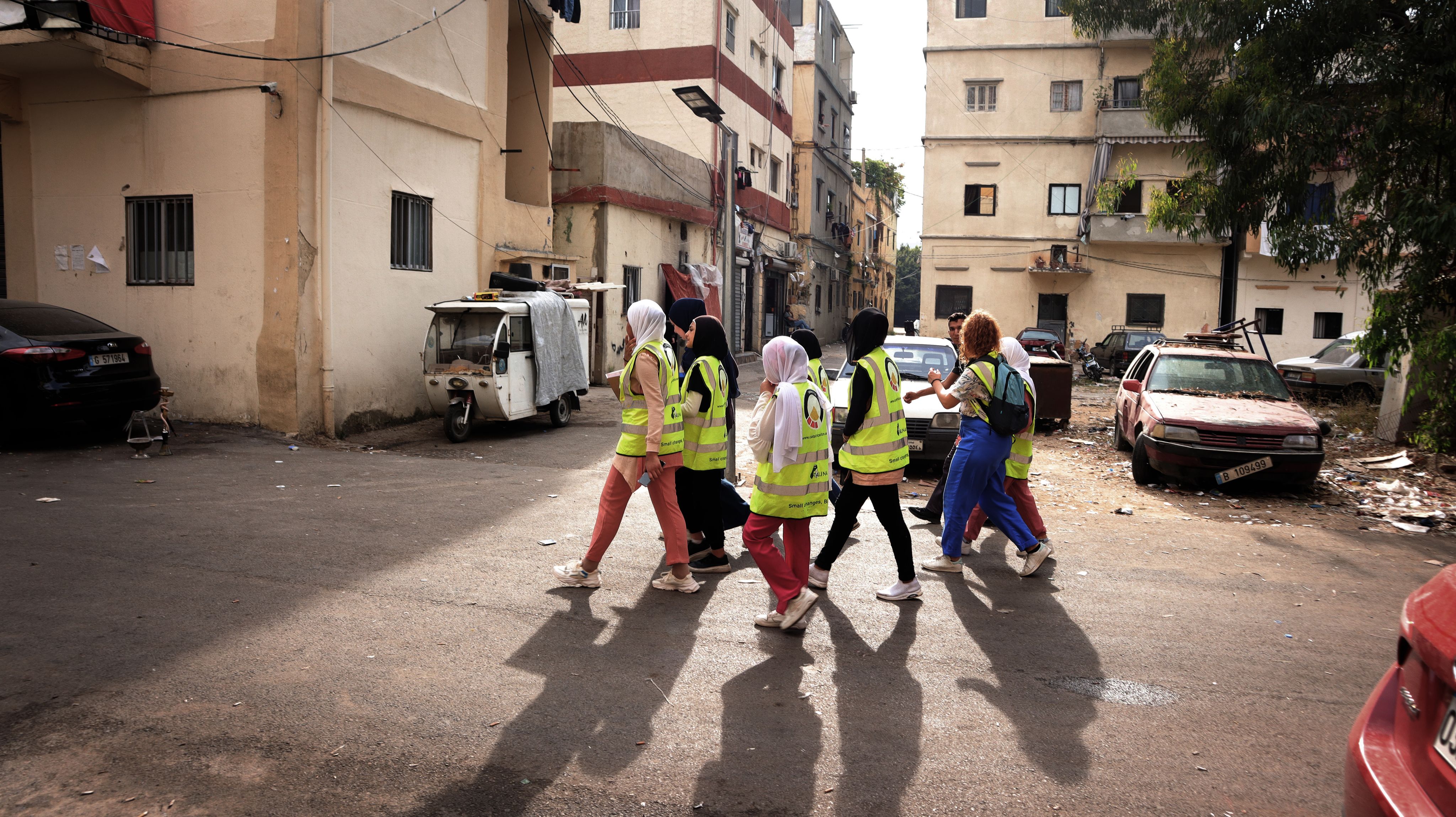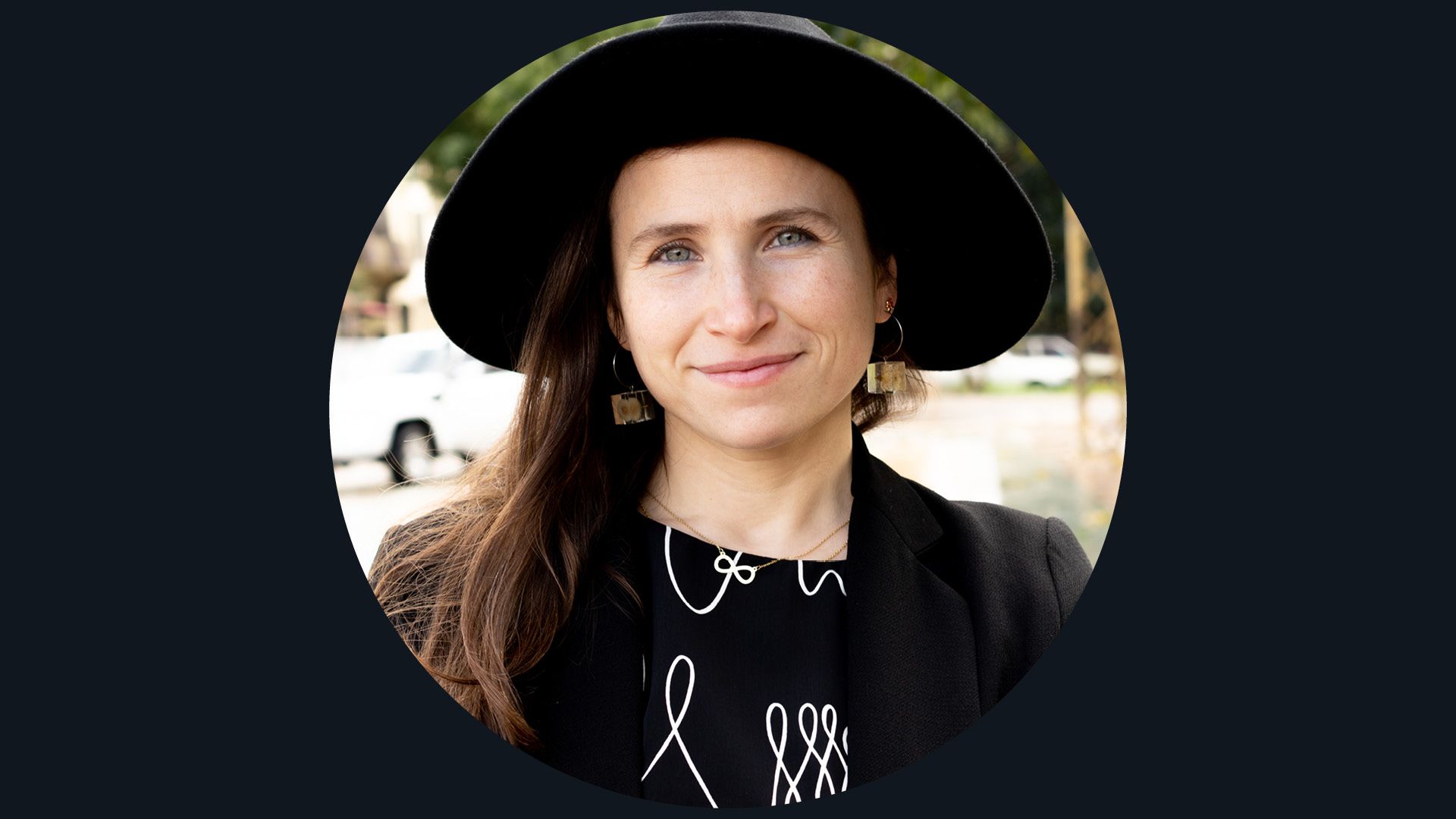Helping girls reclaim the streets of Beirut
Bartlett alumni-run charity CatalyticAction is helping young women reimagine the public spaces of Beirut
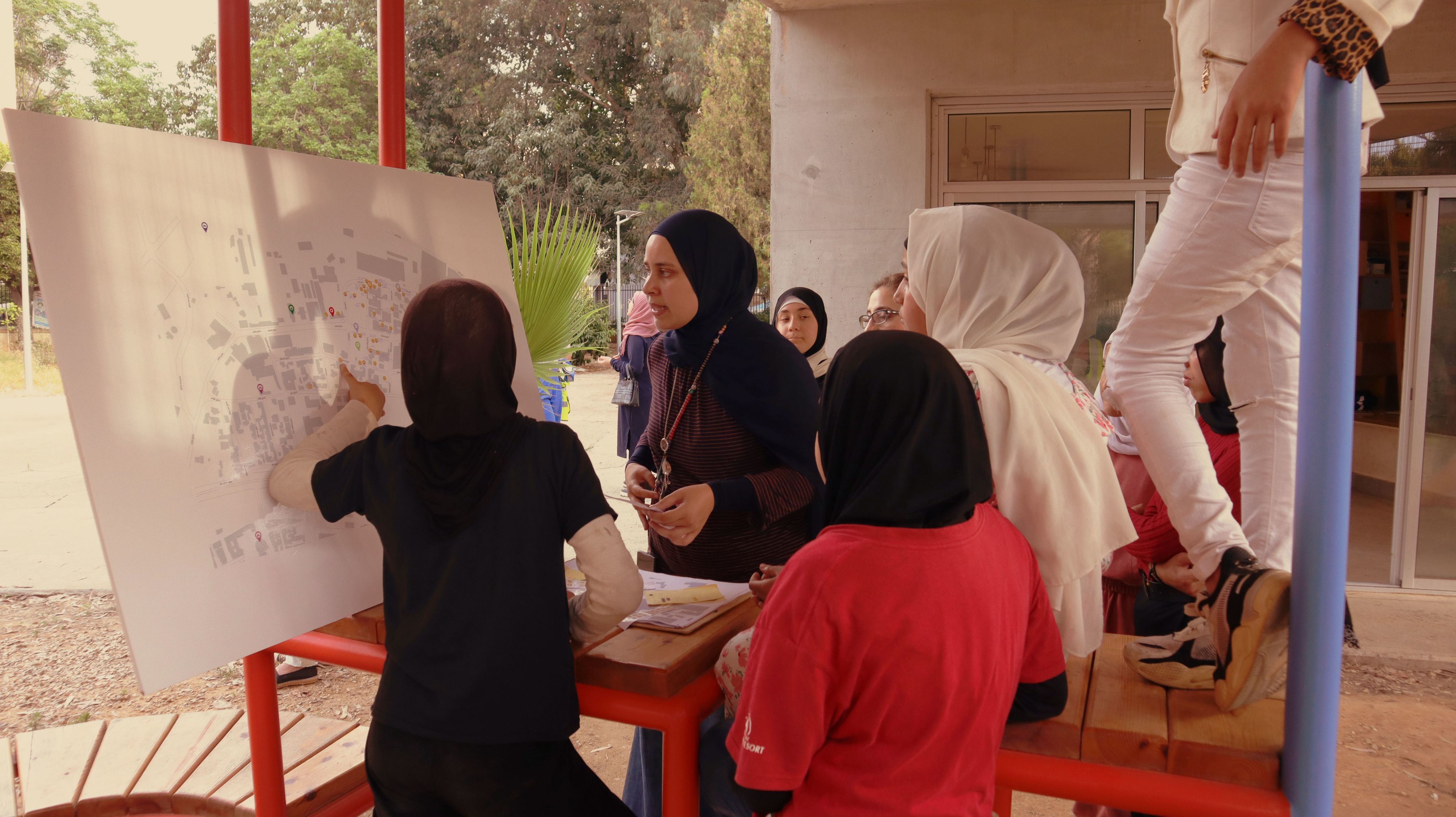
“My sister Riham has a hearing and speech impairment. She spends most of her time now in the space CatalyticAction rehabilitated because it’s nice and it’s directly in front of our house. My mom gets worried to let her go anywhere else alone – she won’t be able to hear cars or if someone is attacking her. Riham’s so happy to be part of these activities, meeting other girls and exploring together different parts of the neighborhood.”
Riham’s horizons are broadening. However, for most teenage girls in Lebanon, the opposite is happening.
For girls growing up in Karantina and across Lebanon, their freedom to use public spaces shrinks as they get older. By the time they reach adolescence, many public spaces are effectively off limits, with few facilities, and restrictions on the time they can spend and activities they can do there.
Leaving the house becomes a task that must be planned in advance, using specific routes to avoid secluded spaces where they risk verbal or physical harassment. Usually, teenage females will be accompanied by a male relative or caregiver on most journeys out of their home.
“My family doesn't let me get out of the house, because I am a girl...not a boy”
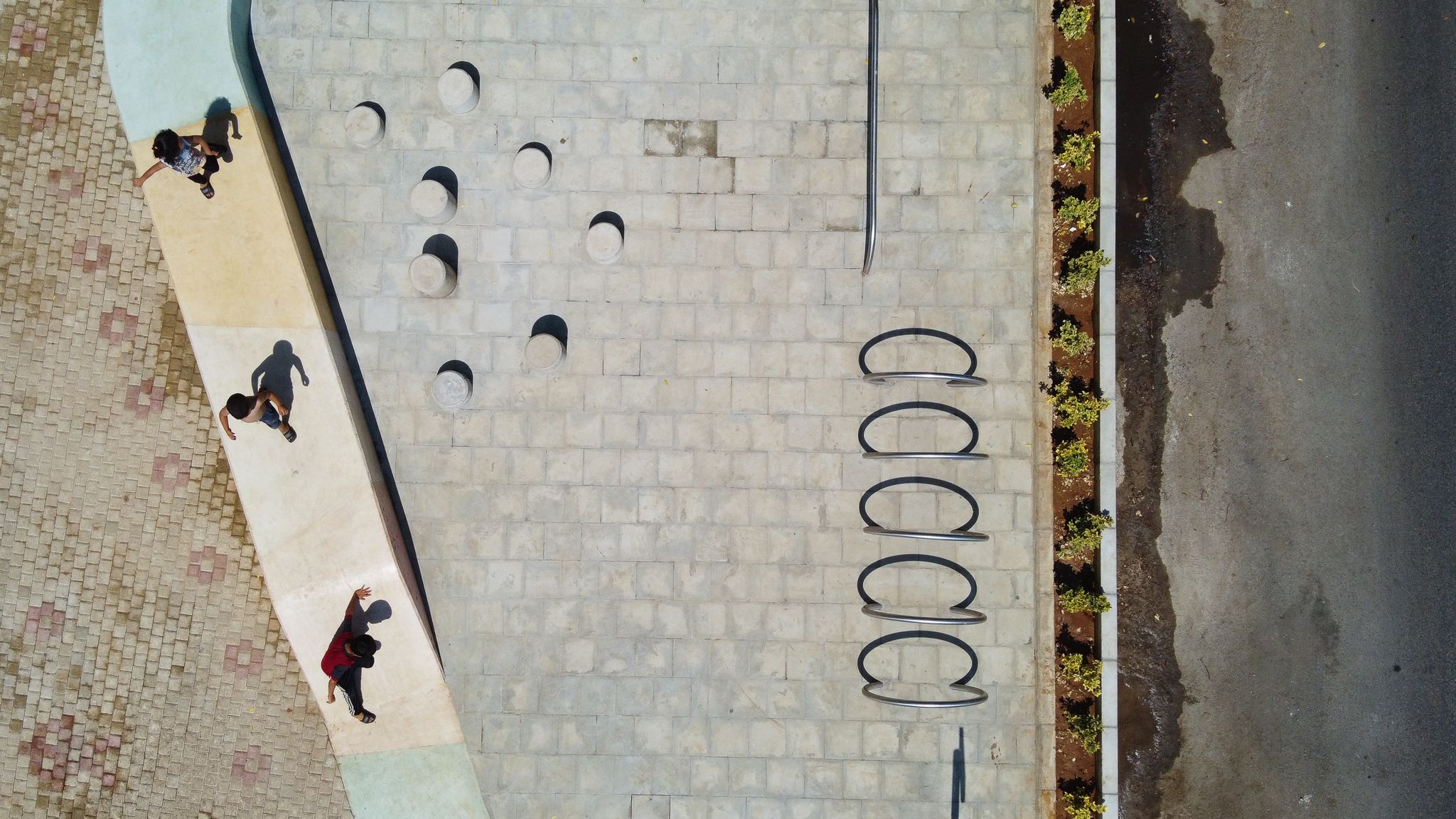
Growing up a girl in Lebanon
Faced with these challenges, many girls choose to simply stay indoors. As a result, they miss out on the opportunities public spaces offer to develop vital social, cognitive, emotional and physical skills.
Joana Dabaj – architect, researcher and co-founder at CatalyticAction – grew up in Lebanon. She remembers very well the debilitating effects of these restrictions on the development of teenage girls.
“It limits their opportunities – to move freely and independently in the neighbourhood, to meet their girlfriends and hang out. It’s so important for adolescents. They really need the space to vent about what’s going on. There’s lots of changes happening, lots of different experiences they’re going through – it’s a crucial moment, as they change from children to adults.
“So they really need the safe space to meet their friends to discuss these feelings. And if the environment doesn’t allow this, they end up with a sense of weakness, of not being able to express themselves.”
Creating and developing these opportunities is the primary goal of CatalyticAction’s latest project, building on the success of their previous projects in Karantina aimed at empowering the community through participatory spatial interventions.
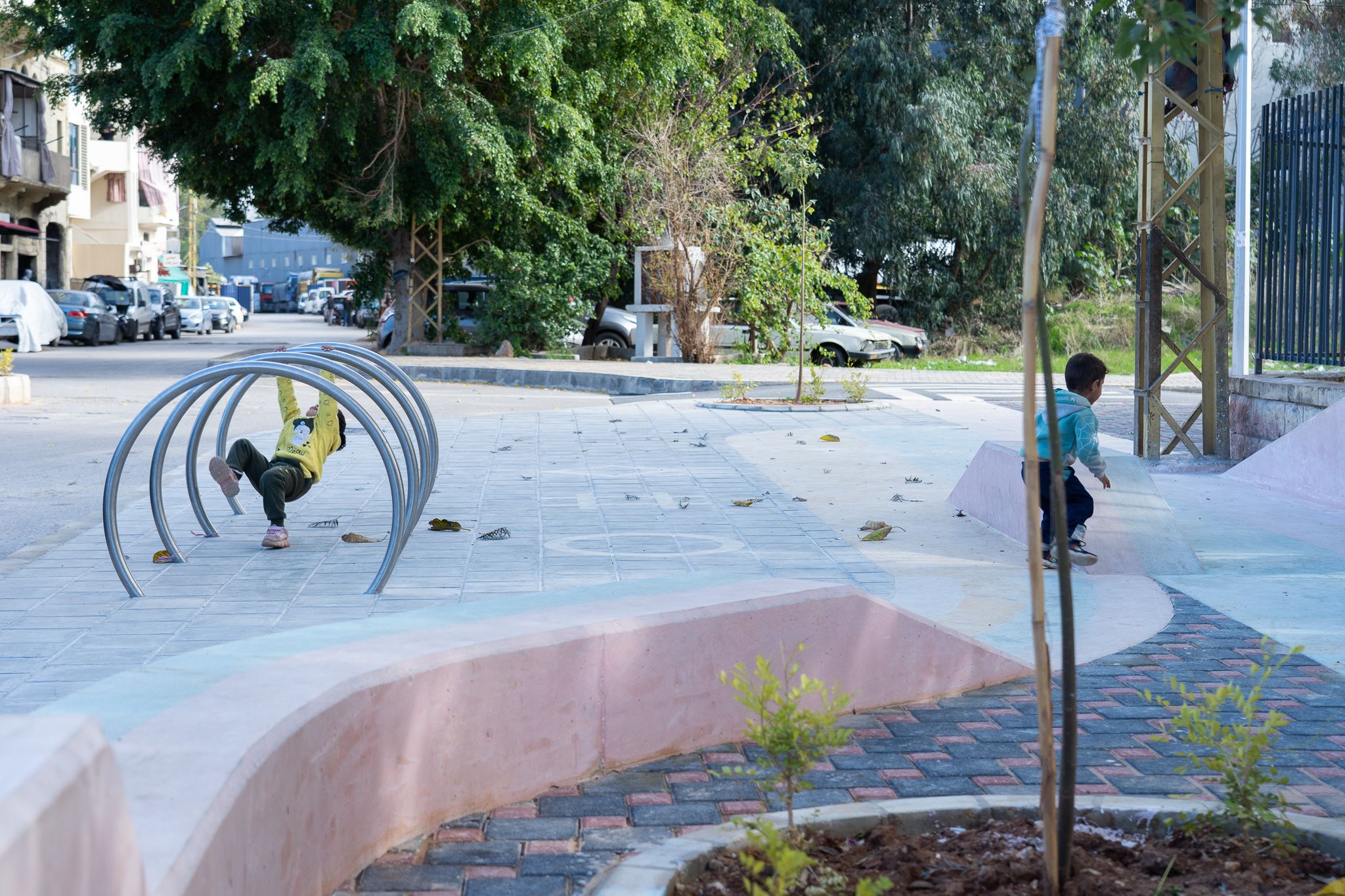
Combining academic research with practical action to drive transformative change
Founded in 2014 by Bartlett alumni Joana and Riccardo Luca Conti, CatalyticAction uses innovative participatory design processes to create spaces that reflect the diverse needs and aspirations of the communities and young people who inhabit them.
With 58 successful projects, their work provides rich material and case studies to feed back into academic research frameworks at The Bartlett and elsewhere. Working closely with both The Bartlett Development Planning Unit and the UCL Institute for Global Prosperity, CatalyticAction’s board of trustees includes Dr Andrea Rigon, Associate Professor at The Bartlett Development Planning Unit.
Andrea values highly the working relationship between CatalyticAction and The Bartlett. “We’re involved in many research projects, but this partnership provides a fantastic way to translate research into impact ‘on the ground’. As a professor, I can’t buy five tons of concrete and do all this work – but that’s what’s possible with CatalyticAction.
“The two founders, Joana and Riccardo often come to teach our students, and we use their case studies in our core courses. It’s a cycle of impact – based on the research and teaching, people go and do amazing things, but then the amazing things they do then feed back into the teaching and our research.”
Adolescent girls map public spaces in Karantina. Photo by Mauricio Yazbek © CatalyticAction
Adolescent girls map public spaces in Karantina. Photo by Mauricio Yazbek © CatalyticAction
Karantina’s women collective meet at the park to discuss the importance of public spaces. Photo by Joana Dabaj © CatalyticAction
Karantina’s women collective meet at the park to discuss the importance of public spaces. Photo by Joana Dabaj © CatalyticAction
Adolescent girls walk in Karantina to map public spaces. Photo by Mauricio Yazbek © CatalyticAction
Adolescent girls walk in Karantina to map public spaces. Photo by Mauricio Yazbek © CatalyticAction
Helping children understand their own transformative power
The participatory research approach pioneered by CatalyticAction and the associated research bodies has been enshrined in a handbook published in partnership with UNICEF and UN-Habitat, the UN’s global urban development programme.
The concepts and strategies outlined in the handbook will help funders understand how child-responsive interventions (such as these Minecraft-inspired public stairs in Mar Mikhael or the intervention in Makani that Riham enjoys) can have a profound effect at both the community and the individual level.
“The intervention, the space itself, is a key physical output that remains, but it’s not just a built product – it's a physical representation of the process these young women have worked on together, these decisions they’ve made together.”
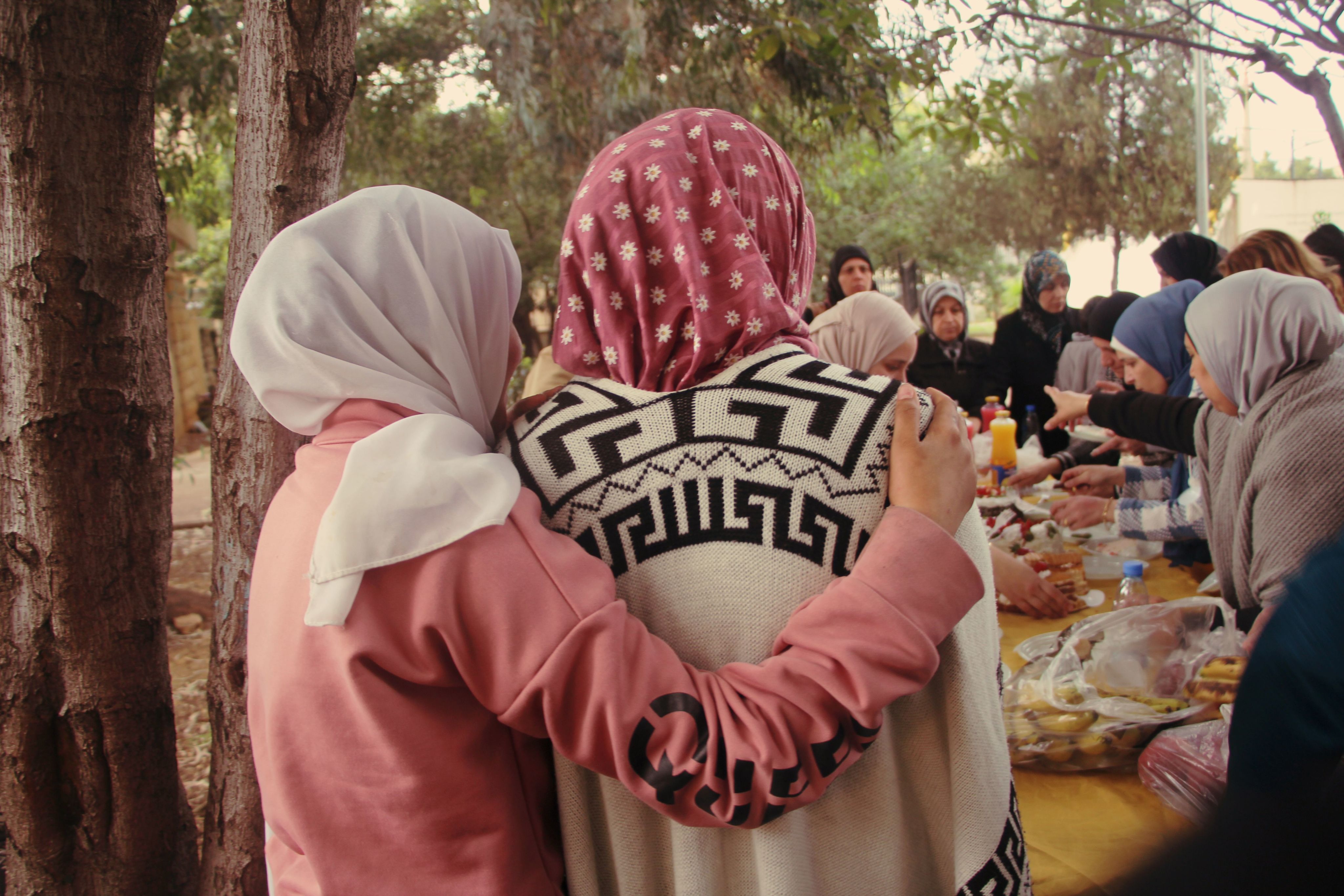
Using participatory planning to improve intersectionality
Gender inequalities aren’t the only problem in Karantina – the influx of Syrian refugees to the neighbourhood and the compounded crises Lebanon has been going through has led to increased social tensions.
Participatory planning research provides useful tools to help young people from different backgrounds explore and defuse these tensions – and as previous CatalyticAction projects have shown, interventions aimed at children can help bridge distances and ease conflict in the broader community.
As Andrea points out, the benefits of participation in projects like these can be even greater for children affected by displacement. “The participatory process of planning and designing your own space is something that radically empowers people. Particularly children affected by displacement. Their life happened to them, rather than them shaping it.”
This latest project is still in the initial stages, but anticipation is high, especially amongst the girls for whom participation is itself an act of empowerment.
“It keeps getting bigger… every activity we do, more girls are coming. Girls are talking about the project and seeing the possibilities and impact, and they're telling the other girls to come and join,” says Joana.
“I don’t know yet how the space we design will turn out to be, but I am very curious to participate in all the activities to design and build it.”
“The participatory process of planning and designing your own space is something that radically empowers people.”
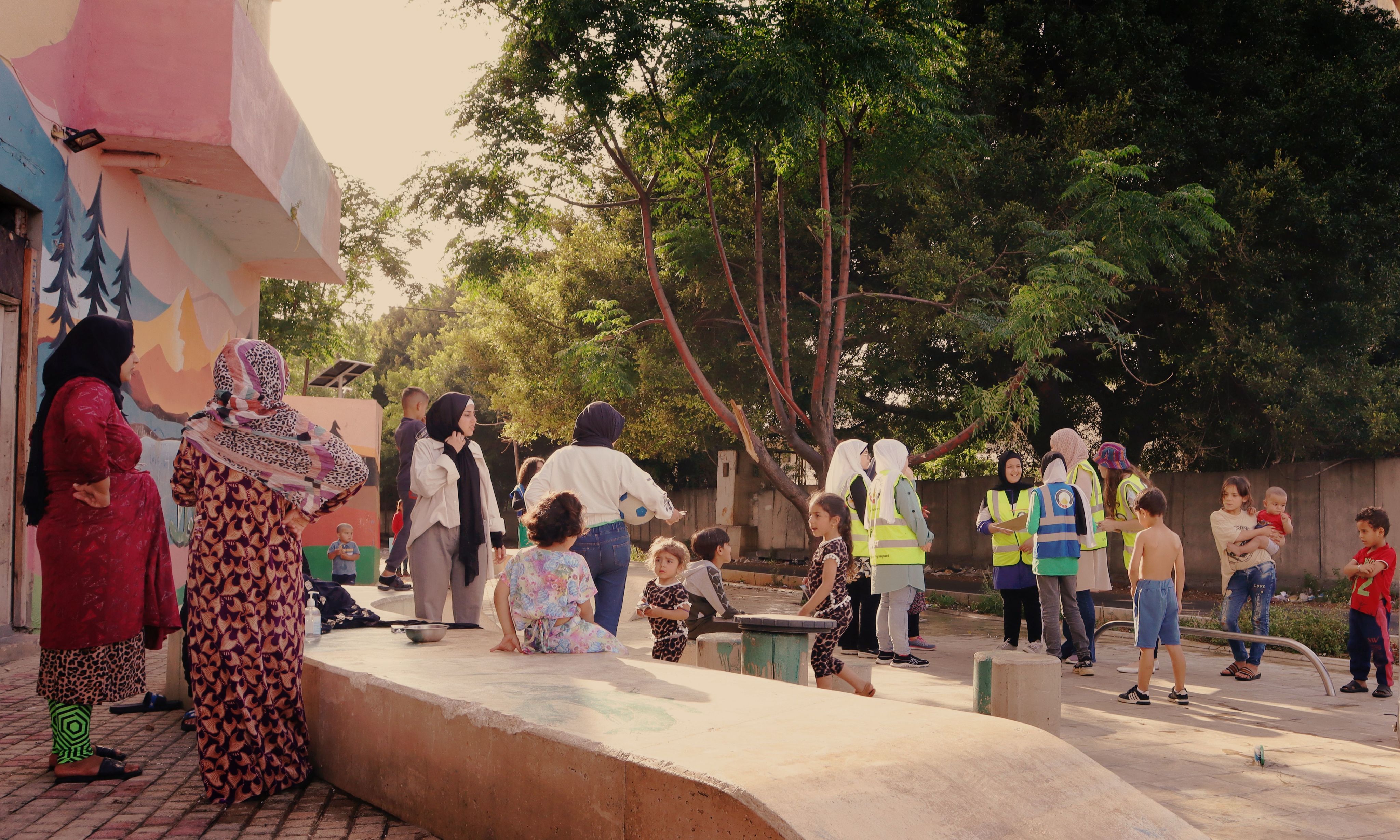
About the authors
Joana Dabaj
Co-founder at CatalyticAction, architect and researcher
Joana is the co-founder and Director of Programmes at CatalyticAction, a charity that uses design and architecture to empower vulnerable children, youth and their communities. She holds an MSc in Building and Urban Design in Development from The Bartlett Development Planning Unit, University College London, and a Bachelor of Architecture from the American University of Beirut.
She is an architect and researcher whose recent work revolves around working closely with displaced and host communities in Lebanon to co-design inclusive research and built interventions; this includes participatory design, citizen science led research, advocacy and community engaged construction.
Dr Andrea Rigon
Associate Professor, The Bartlett Development Planning Unit, University College London
Andrea has 18 years of international experience in the international development and humanitarian sectors working for NGOs, academia, and consulting for the United Nations, donors and government in 15 countries. He is a founder of the Sierra Leone Urban Research Centre and is also the Chair of Catalytic Action.
His research adopts an intersectional approach to address inequalities in urban development processes, particularly in informal settlements, and climate change. He is a Programme Leader for the MSc in Social Development Practice.
Story produced by All Things Words
© UCL The Bartlett 2023


